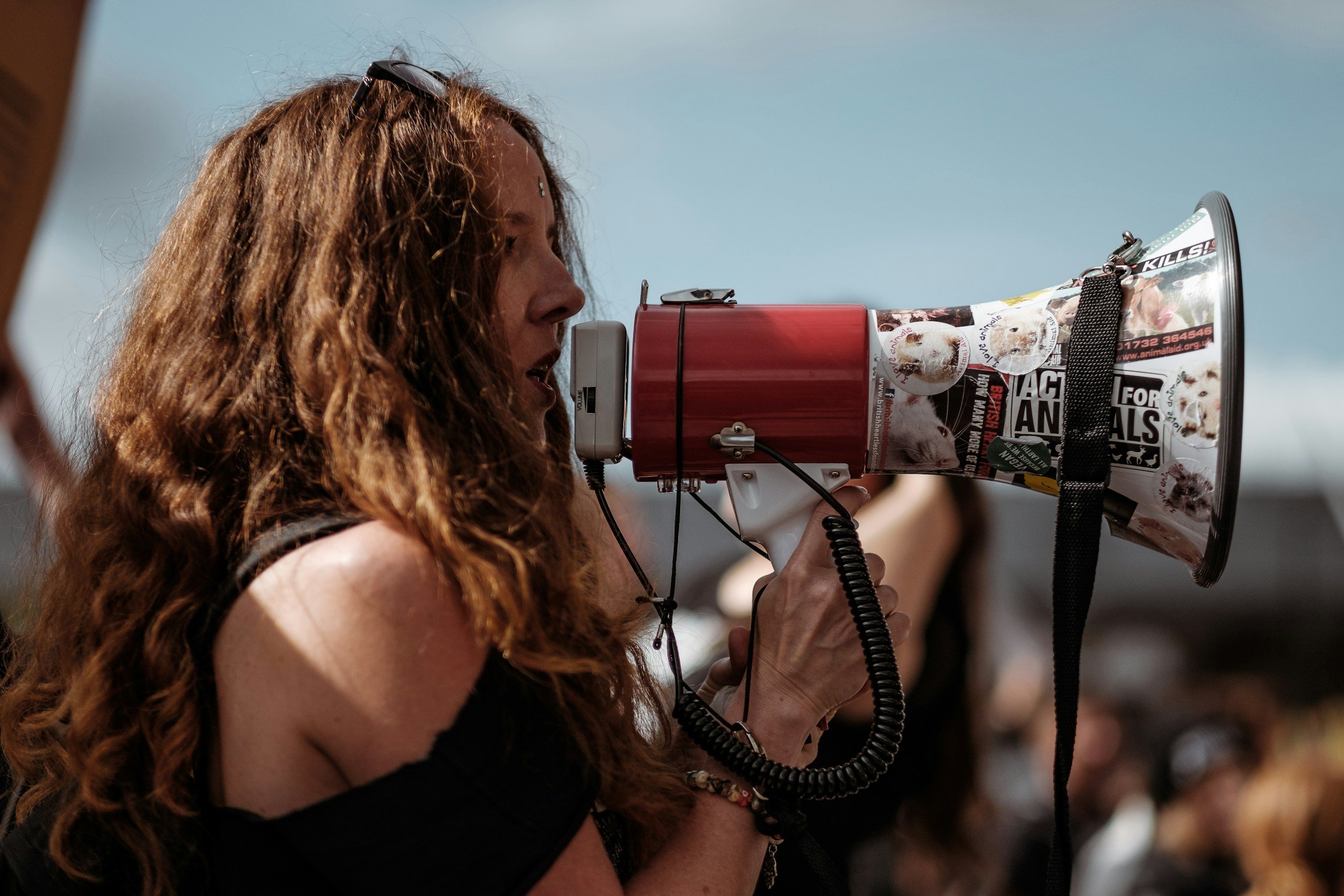
There’s No Shortcut to Healing Childhood Trauma: Embrace the Journey
There is no magic pill, no secret shortcut to healing childhood trauma. It’s not something you can fix overnight. If you're here looking for that easy way out, you might as well pack up and leave now because, truth bomb: healing takes time. Yep, real, honest-to-goodness time, much more than most people are willing to admit.
There’s a quick-fix mentality even among healthcare professionals sometimes. And I fell right into that trap, thinking, "Why does it have to take so long? Why can't I just move on?"
Here’s the deal: you’re trying to unravel years, maybe even decades, of deep-seated pain and trauma. You can’t just snap your fingers and fix that. You have to be ready to commit to the long haul. Healing is like climbing a mountain—exhausting, frustrating, and at times, you slip and slide back before you can progress.
Here are some practical tools and techniques to help you feel less stuck and more empowered on your healing journey:

Fifth Sign You’re Ready to Start Healing: You’re Ready to Feel Your Emotions
Welcome, dear readers, to the grand finale of our five-part series on the signs that you're ready to heal. If you've journeyed with us through the previous signs, you know we're about to delve into something profoundly transformative. Today, we’re exploring the fifth and perhaps most exciting sign: the desire to feel alive again.

Fourth Sign You’re Ready to Start Healing: Breaking Free from Perfectionism
If you are ready to heal, you will find that being anything but perfect is perfectly okay. You will prefer to be your authentic self rather than morphing into a chameleon to please others. For me, this realization came when I accepted that my kids were happy, they knew I loved them, and it was okay to have screen time and a messy playroom. I stopped trying to have a perfectly decorated house and felt less stressed and anxious as a result.
The journey of letting go of perfectionism is not easy, but it is worth it. It allows you to experience life more fully and authentically. Brace yourself for the unexpected feelings that may arise, but know that embracing imperfection will lead to incredible growth and healing.
Start your healing journey today and discover the beauty of being perfectly imperfect!

Third Sign You’re Ready to Start Healing: You’re Facing What You've Avoided
Have you ever reached that point where you're just so tired of feeling the way you do? That feeling where you think you might finally be ready to start healing, to do the inner work you've been avoiding? If you've got that feeling, consider it a sign. It's a sign that you're ready to face what you've been running from, and believe me, you're not alone!
It's utterly exhausting when we constantly try to avoid the things we know we need to work through. Whether it's people, places, or things that remind us of past trauma, avoiding them takes up an enormous amount of energy. Mentally, physically, and emotionally—it's draining. When we avoid these triggers, we allow ourselves to numb out, skating around the issues without truly addressing them.
But deep down, we know this isn't sustainable.

Second Sign You’re Ready To Start Healing: A Strong Desire to Reconnect with Your Mind, Body, and Spirit
If you think you're ready to start your healing journey, or you're not quite sure and looking for a sign, here’s your sign. This is the second sign that you want to feel more connected with who you are on a deep level—mind, body, and spirit—because honestly, you're tired of feeling like a stranger to yourself, right?
If you haven’t read about the first sign, you can do it here and then come back!
Growing up, there were many things you wanted to do but were told you couldn’t, for whatever reasons. Maybe it was because there wasn't enough money, your caregiver didn't see the value in them, or you simply had no way to get there. When you grow up being told "no" to the things you want to do, or that your feelings and emotions are wrong, for example, you start to lose trust in yourself. You stop listening to your inner guidance and the voice in your heart. You stop trusting your thoughts, thinking maybe you're crazy or completely out of touch. This often leads to feeling like an empty shell of a person
If you relate, I’m sure you want to know yourself. You want to be able to trust yourself, to have that strong connection that many talk about but you can’t seem to find. You want to listen to your body, trust your gut, and listen to your instincts without feeling like a completely crazy person. Often, these issues stem from being told "no" repeatedly growing up. Even after leaving those caregiving situations, you may still struggle to make decisions for yourself–and you’re not the only one!

The First Sign You're Ready to Begin Your Healing Journey: Putting Yourself First
Today, we’re diving into a pivotal moment in your healing journey: recognizing that you’re tired of putting everyone else first. This might have felt like an eternity to reach, but you're here, and that's what matters. It’s time to celebrate this realization as it marks the beginning of a true transformation!
Many of us grew up believing we had to prioritize others to receive the love, acceptance, and support we craved. As children, we longed for our emotions to be validated, for affection through hugs, movie nights, or shared moments like reading together. When we didn’t receive these things, we observed others who did and learned that the way to get attention and care was to put others before ourselves.
This behavior can infiltrate any relationship—friends, coworkers, or family. We find ourselves without boundaries, and we do not know it. Our time isn't ours; our money isn't ours, and our space isn't ours. The hard pill to swallow? It’s us that are doing this to ourselves!

From Over Explainer to Calm Communicator: My Journey and How You Can Do It Too
Over-explaining is not something we do consciously and could be because of a few key reasons, most of them related to deeply rooted past trauma or childhood trauma.
If you’ve gone through it or you’re a compulsive over-explainer, you definitely know how bad it feels and probably just want to stop doing it. Please come with me to learn why it happens and how to prevent it forever.

Breaking Free from Worry: How to Stop Living in Survival Mode
The journey toward healing and peace requires you to be present and, if you have to join the party, you might try to enjoy it as well. If you're new to this path, explore more resources and seek the support you need. This blog is a haven for those looking for guidance and understanding, and if you’re new here, I welcome you with open arms and so much joy. Together, we can learn to embrace peace and break free from the chains of worry. Trust in yourself and the journey ahead!

Breaking Free from the Chains of Control: A Journey to Letting Go
Do you ever feel like it's your way or the highway all the time? If so, you may be relying on an intense need for control as a survival strategy. This is something I grappled with for a long time, often without even realizing it. My desire to control everything and everyone around me was a misguided attempt to protect my loved ones from harm but, spoiler alert: The result was far from that!
There's a significant difference between control and influence, and understanding it is a great starting point if you want to engage in more respectful dynamics. Here’s what you should know:

Embracing Motherhood, Creativity, and Growth: Insights from Mitzi Ocasio
Motherhood, creativity, and personal growth are journeys filled with challenges and triumphs. Recently, I had the pleasure of delving into a fascinating conversation with Mitzi Ocasio, a fellow podcaster, and children's book author, who shared her profound insights on these topics. Our discussion touched on the power of storytelling, overcoming fears, and leaving a legacy that transcends generations. Now I want to share it with you!

Stop Running Away: The Real Work Begins When the Vacation Ends
THow many times have you told yourself, "I just need a vacation"? It's a go-to line for many of us dealing with life's stress and challenges. I’ve heard it from my clients for years. But being completely honest—a vacation isn’t a magic fix, and we both know it, right?
While vacations are awesome for a short-term break –and maybe a sexy tan– they're not solving the underlying problems that made you run away in the first place. It’s easy to blame others when things don’t change after you come back. "I took time off, I relaxed, so it’s not my fault things are still bad." Well, I hate to break it to you but, even if the initial situation that was stressing you out was not necessarily your responsibility, the aftermath after avoiding it will be. It’s actually up to everyone involved to do the hard work of addressing the root causes before it becomes an unmanageable nightmare.
Instead of running away, let's face things head-on. It might mean awkward conversations, dealing with anger or frustration, maybe even some tears. But this is how we grow and find real solutions like real, very aware and responsible adults. Avoiding problems only leads to a never-ending cycle of stress and escape and that's exhausting.

Embracing the Lessons of Our Past: How Pain Shapes Our Growth
Regret often stems from wishing we could rewrite history. But what if we reframed our experiences? Instead of dwelling on the pain, we can focus on the wisdom gained. That abusive relationship wasn’t wasted time; it was an intensive crash course in self-awareness, and these are three master lessons I learned and want to share with you, in case you need them today:
· Boundaries and Self-Respect: In the crucible of mistreatment, you discover the importance of setting boundaries. You learn that love shouldn’t hurt, and that self-respect is non-negotiable. As a coach, I now guide others toward healthy boundaries, helping them find their voice without compromising their well-being.
· Empathy and Compassion: Pain cultivates empathy. When you walk through fire, empathy fuels your passion for helping others and it’s the compassion you develop that helps you advocate for yourself, for growth and forgiveness.
· Resilience and Perseverance: Life isn’t always about cruising the highest waves magnificently; it’s about recovering gracefully when you miss them. What I mean is that life throws some crazy challenges our way. Your resilience—the ability to bounce back after heartbreak—inspires. Learn that setbacks are part of the melody of life, not the end of the song.

The Cost Of Holding On
Letting go is an act of courage and strength. It’s about releasing the things that no longer serve us, making room for growth and moving forward with purpose. This journey of release is not just about saying goodbye; it’s about opening up to new possibilities and embracing change.

Meeting Emotional Needs: From Unhealthy Patterns to Self-Validation
It was during a leadership seminar that I had an epiphany. As I worked toward my life coach certification, I explored my emotional landscape. I paused to understand what I truly needed—for myself and my relationships. The key? Self-awareness. I began asking questions:
“What emotions am I experiencing?”
“What triggers my emotional responses?”
“How can I validate myself without relying solely on external sources?”
I learned that self-validation was the missing piece. Instead of seeking validation externally, I started filling my own cup. Here’s how:

Filling Your Own Tank: The Journey to Self-Appreciation and Love
Filling your own tank is not just about self-indulgence; it’s about self-preservation and growth. When we learn to appreciate and love ourselves, we create a wellspring of positivity that overflows into every aspect of our lives. So, start today.
In this post you’ll find some of my most powerful activities for self-celebration and reflection.

The Healing Journey: Embracing Inner Child Work and the Victim Impact Statement
Writing a victim impact statement can be a cathartic experience. It allows you to confront your past and articulate your pain, which can be a significant step towards letting go. It’s not about forgetting or excusing what happened, but about acknowledging it and reclaiming your narrative.
After attempting to write a victim impact statement, you may find that revisiting inner child work is beneficial. It’s an ongoing process, one that can be returned to as many times as needed. Each visit can offer deeper insights and further healing.
I invite you to consider these tools as part of your healing journey. Whether it’s through writing a victim impact statement, engaging in inner child work or finding other methods that resonate with you, the goal is to move towards a place of peace and self-compassion.

Building a Self-Reliant Toolbox: Strategies for Emotional Resilience
Self-reliance is about having a set of tools at your disposal that you can use to manage your emotional state. It’s about being equipped to handle whatever life throws at you, without feeling dependent on external solutions. This doesn’t mean rejecting medical advice or assistance; rather, it’s about complementing it with personal strategies that enhance your ability to cope.
My toolbox is built on three foundational pillars. Let’s explore each of these and how they can empower you to manage your emotional state effectively.



